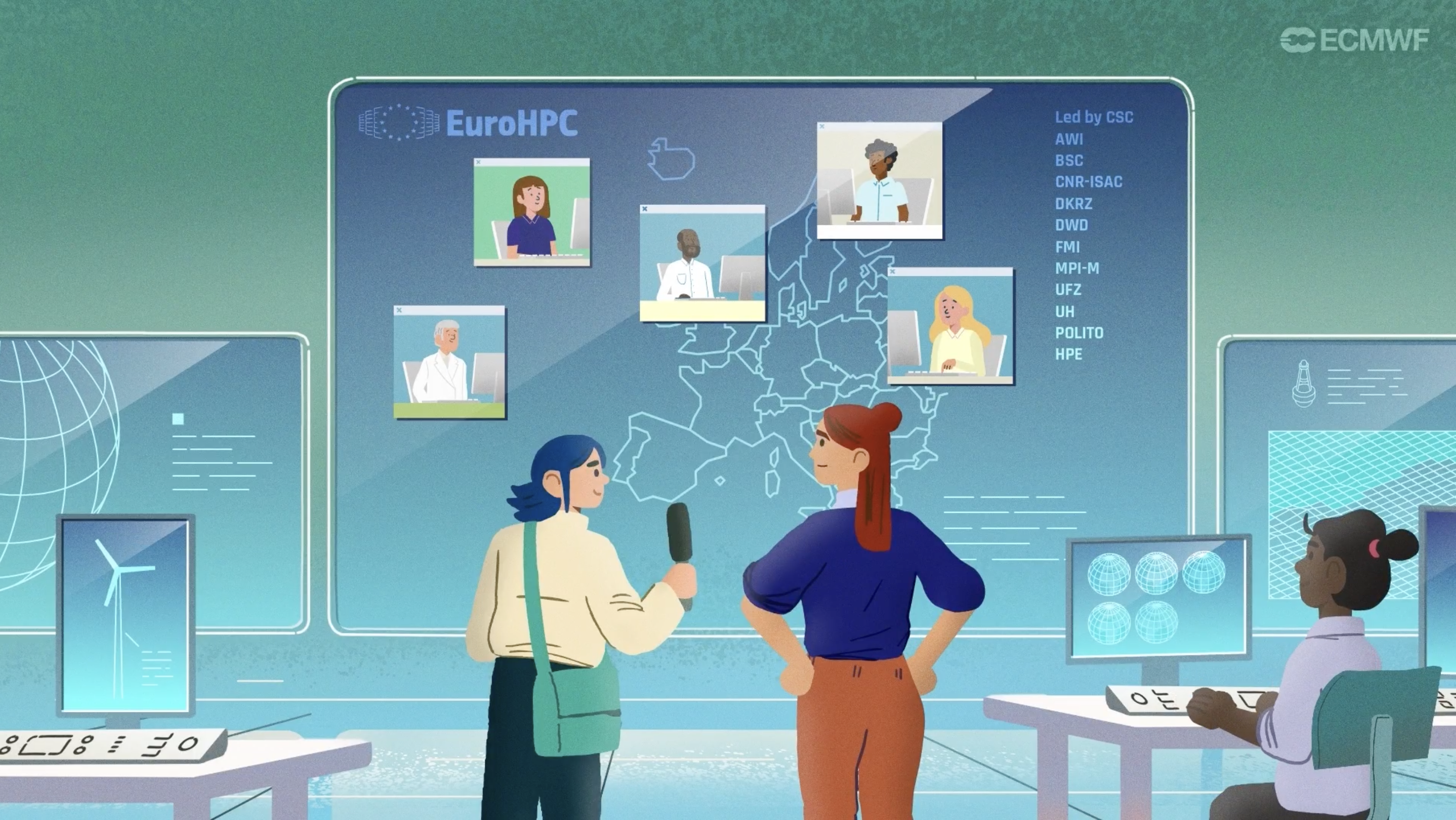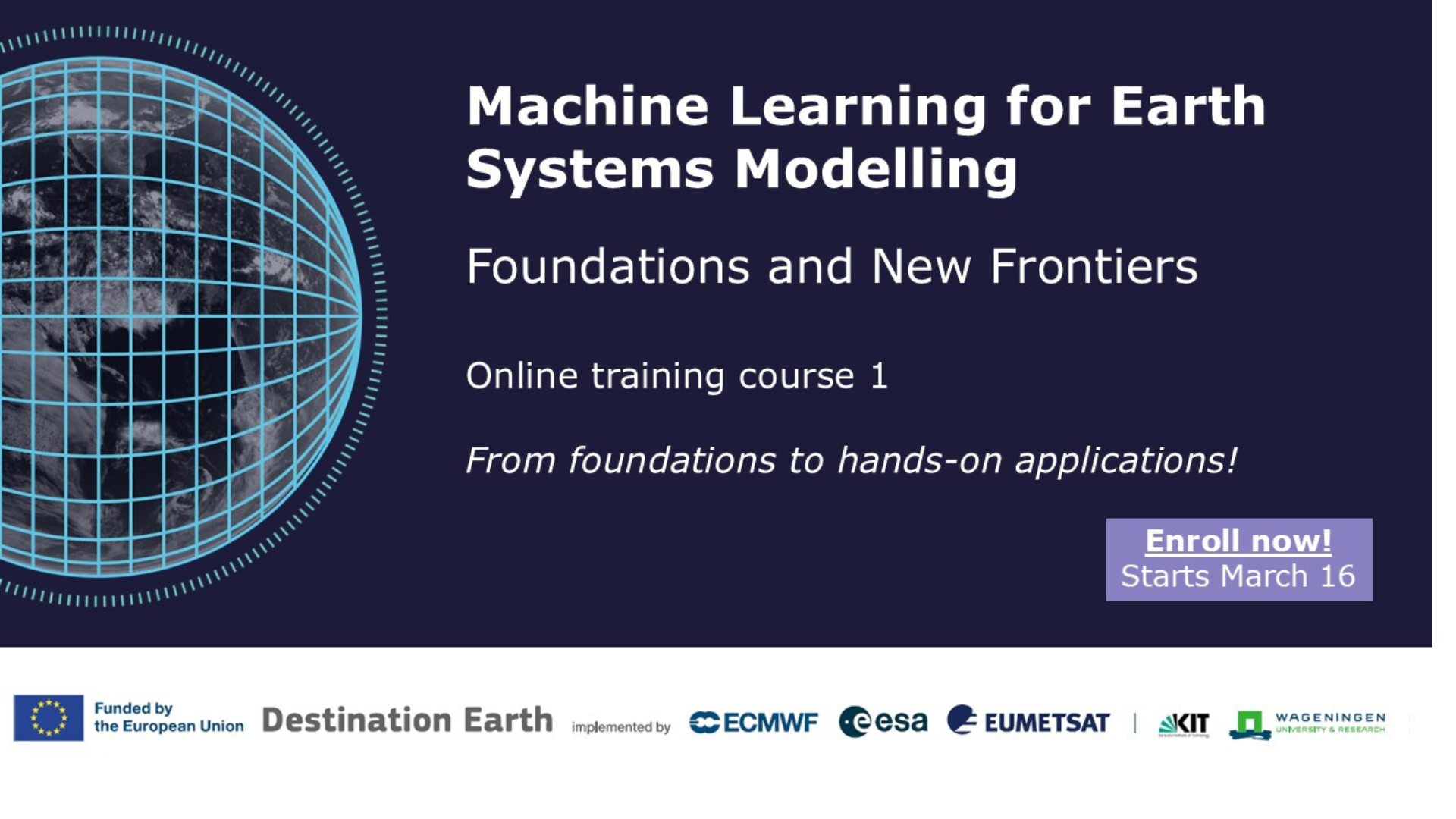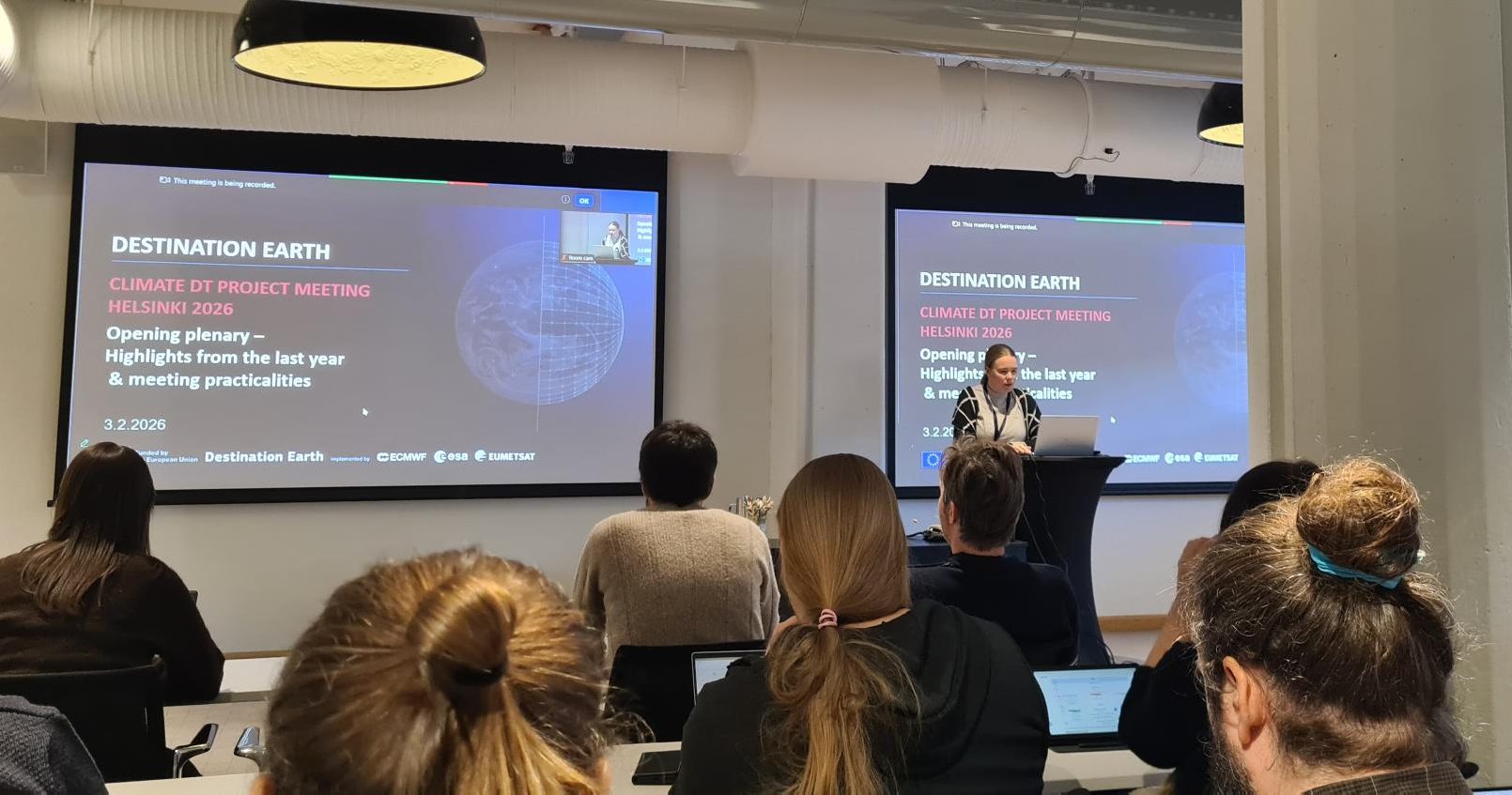
How should Destination Earth implement a robust quality control concept? What are the requirements for a transparent system that evaluates the performance of the digital twins and connected impact sector models? Utrecht University and the European Centre for Medium-range Weather Forecasts (ECMWF) have signed an agreement to develop a quality control (QC) concept for DestinE and a corresponding implementation roadmap, with a focus on the first two high-priority digital twins and the models and applications focused on the sectors most impacted by climate change and weather extremes.
Utrecht University leads a European team of experts from five top-level European institutions with expertise and experience in climate research and service provision that will design a quality control framework adapted to DestinE, the digital twins and its applications.
The work includes reviewing best practices from European climate and weather services like ECMWF and Copernicus and national meteorological and hydrological services across Europe to review the lessons learned and adapt the guidelines to DestinE specificities.
The contract foresees the development of a robust uncertainty quantification assessment and quality control by learning from the QC frameworks of existing operational services and the innovative machine learning-based uncertainty methods developed at ECMWF such as the Bayesian Neural Networks, the Ensemble Model Output Statistics, the Wasserstein distance and the Anomaly Detection Algorithms.
The team involved will carry out a thorough analysis of these uncertainty quantification methods and their suitability for the km-scale simulations of DestinE digital twins, that will generate gigantic amounts of data, nearing 1 Petabyte a day.
With such volumes of data, uncertainty quantification requires disruptive approaches since the traditional methods, often based on multiplying the number of simulations to evaluate the performance of the model, are not affordable in terms of computing power and data storage.
Ultimately, the contractors will provide an end-to-end QC concept and a roadmap for its implementation. Additionally, the team will propose shared approaches between the Copernicus services and the digital twins of DestinE setting an opportunity for synergies and co-development of QC strategies.
The team involved
Utrecht University has gathered a team of experts with a wide range of expertise fields around QC for climate and weather operational services, impact sector applications and uncertainty quantification. The Italian National Research Council (CNR), Fondazione Centro Euro-Mediterraneo sui Cambiamenti Climatici (CMCC), CoLAB +Atlantic (+Atlantic) and Serco Italia complete the consortium involved.
The members of the team gather proven experience in climate and weather modelling, evaluation and quality control, uncertainty quantification, impact sector applications and technical implementation. The Faculty of Geosciences of the Utrecht University, leading and coordinating the contract, provides extensive experience in developing innovative AI tools and using geospatial information and climate data.
Serco will contribute its experience with satellite data quality and data characterization and the technical implementation of the QC concept. Serco Italia, who are also participating in the implementation of the DestinE Core Service Platform developed by the European Space Agency, will contribute its expertise in multimission QC as well as drafting the DestinE QC concept and the roadmap development.
+Atlantic, CNR and CMCC will review the existing quality control frameworks, summarise the lessons learned and elaborate the DestinE QC design, among other contributions.
Destination Earth is a European Union-funded initiative launched in 2022, with the aim to build a digital replica of the Earth system by 2030. The initiative is being jointly implemented under the leadership of the EU Commission’s DG CNECT by three entrusted entities: the European Centre for Medium-Range Weather Forecasts (ECMWF), responsible for the creation of the first two ‘digital twins’ and the ‘Digital Twin Engine’, the European Space Agency (ESA) responsible for building the ‘Core Service Platform’, and the European Organisation for the Exploitation of Meteorological Satellites (EUMETSAT), responsible for the creation of the ‘Data Lake’.
We acknowledge the EuroHPC Joint Undertaking for awarding this project strategic access to the EuroHPC supercomputers LUMI, hosted by CSC (Finland), and the LUMI consortium, Marenostrum5, hosted by BSC (Spain) Leonardo, hosted by Cineca (Italy) and MeluXina, hosted by LuxProvide (Luxembourg) through a EuroHPC Special Access call.
More information about Destination Earth is on the Destination Earth website and the EU Commission website.
For more information about ECMWF’s role visit ecmwf.int/DestinE
For any questions related to the role of ECMWF in Destination Earth, please use the following email links:


